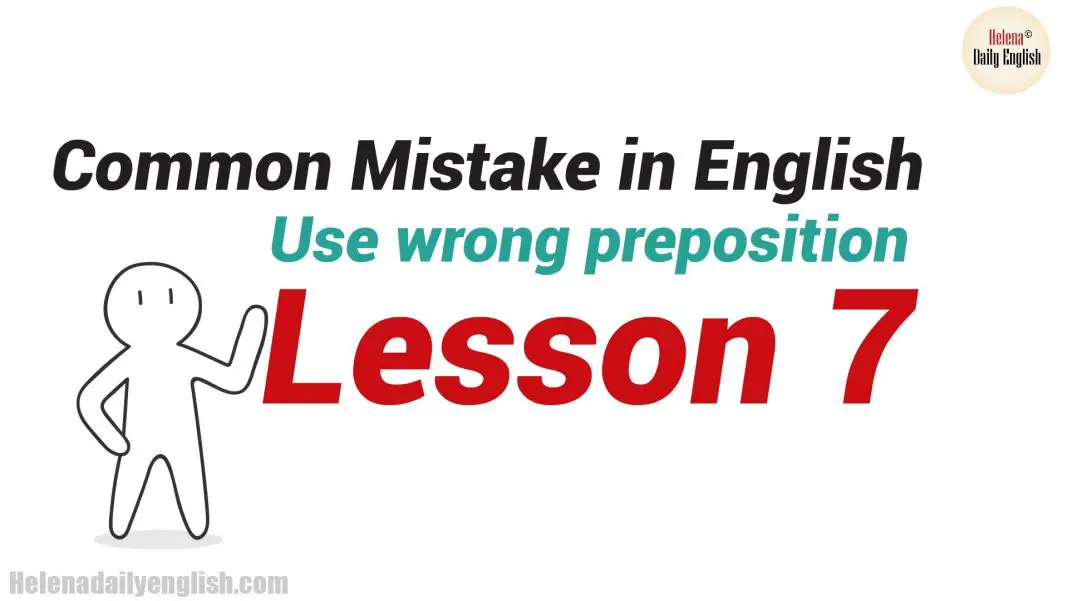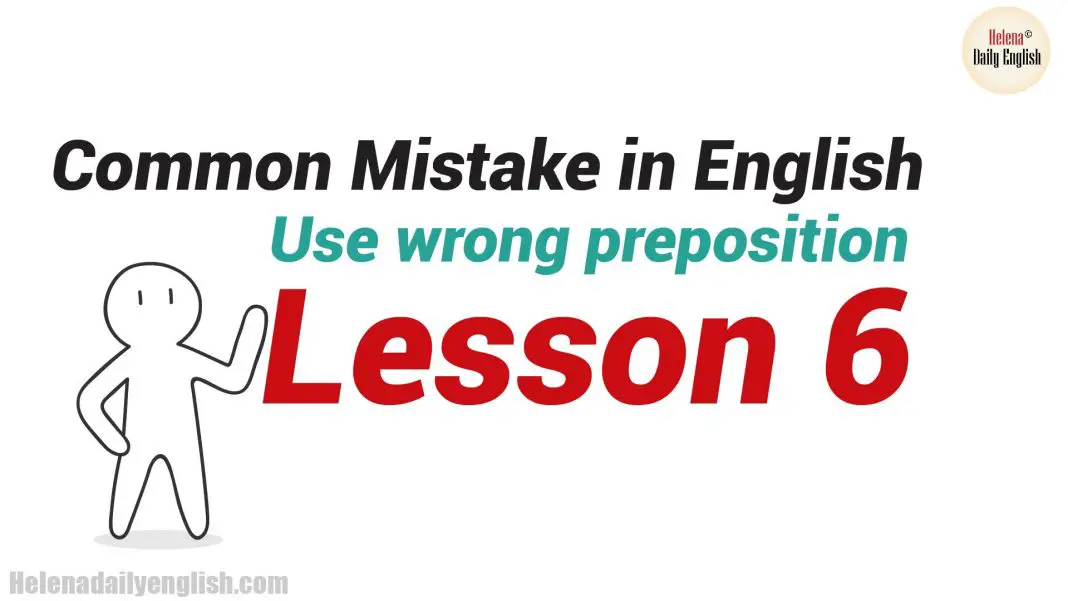Mistakes are often made by using the wrong preposition after certain words. The following list includes the words which most often give trouble:
We believe that you can speak English Correctly after avoiding these mistakes.
1. Sit at a desk etc, not on a desk etc.
- Don’t say: The bank manager was sitting on his desk.
- Say: The bank manager was sitting at his desk.
Note: Also sit at a table. But on a chair, on a bench, on a sofa, etc, in an arm-chair, in a tree or up a tree.
Example: A bird sometimes perches (= sits) on a tree
2. Spend on, not for.
- Don’t say: I spend a lot of time for my computer.
- Say: I spend a lot of time on my computer.
3. Succeed in, not at.
- Don’t say: I hope he’ll succeed at his work.
- Say: I hope he’ll succeed in his work.
Note: A person succeeds to a property, a title, or an office:
Example: Queen Elizabeth II succeeded to the throne in 1952. Also one person can succeed another
4. Superior to, not from or than.
- Don’t say: This is superior from (or than) that.
- Say: This is superior to that.
Note: Also inferior to, junior to, senior to, subsequent to, prior to.
5. Sure of, not for.
- Don’t say: I’m quite sure for her honesty.
- Say: I’m quite sure of her honesty.
Note: Also certain of
Example: I am Quite certain of
6. Surprised at or by not for.
- Don’t say: Harold was surprised for the loud bang.
- Say: Harold was surprised at/by the loud bang.
Note: Also astonished at/by, amazed at/by, alarmed at/by, puzzled at/by, shocked at/by
7. Suspect of, not for.
- Don’t say: I suspect Kate for stealing the pen.
- Say: I suspect Kate of stealing the pen.
Note: Also suspicious of
Example: Dogs are suspicious of grangers
8. Take by, not from.
- Don’t say: Robert took his brother from the hand.
- Say: Robert took his brother by the hand.
Note: Also: hold by, catch by, seize by, snatch by, grasp by.
9. Tie to, not on.
- Don’t say: The girl tied the string on the kite.
- Say: The girl tied the string to the kite.
Note: Also bind to
Example: The prisoner was bound to the state’
10. Tired of, not from.
- Don’t say: The boys are tired from eating boiled eggs.
- Say: The boys are tired of eating boded eggs.





